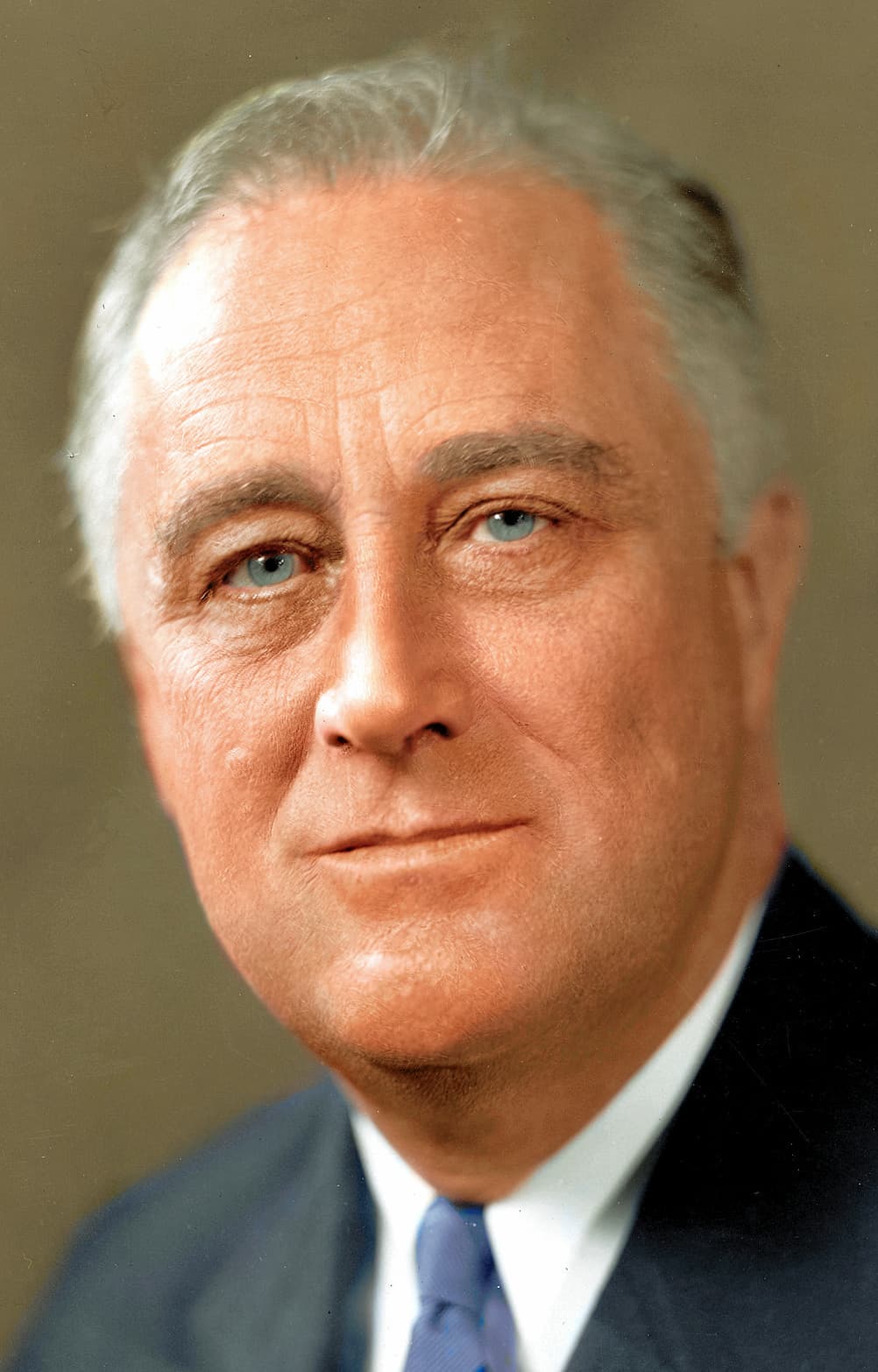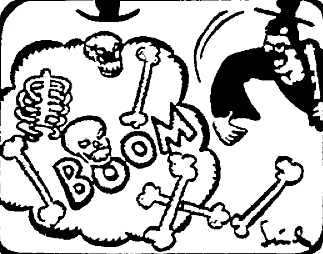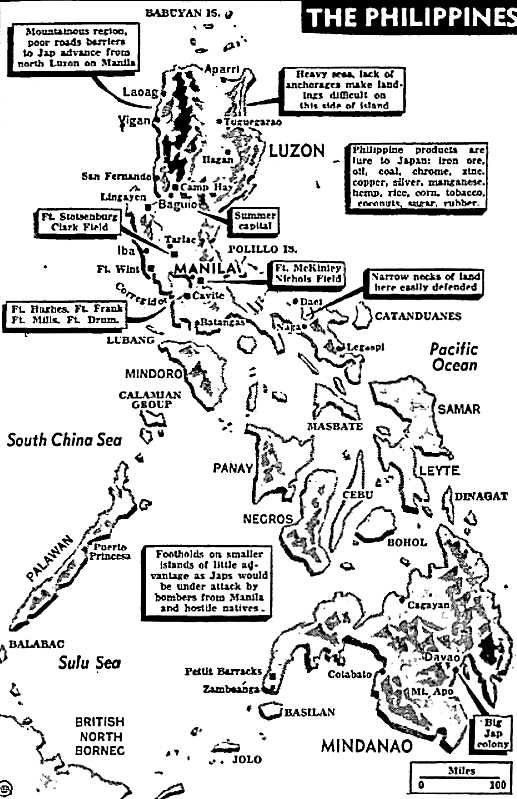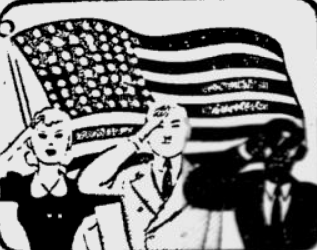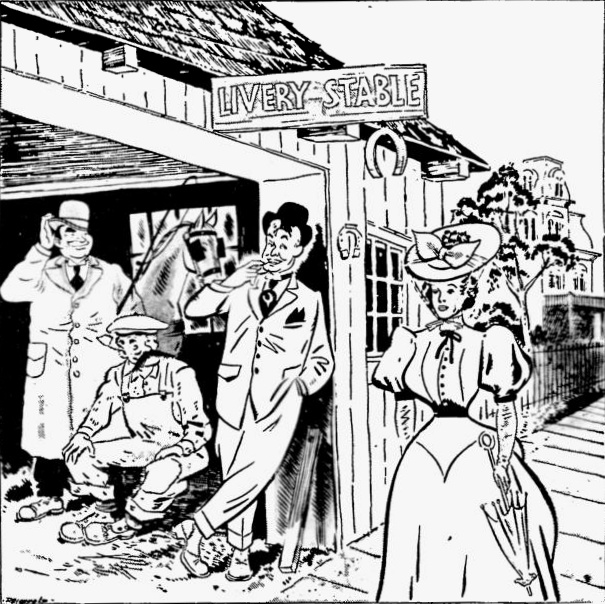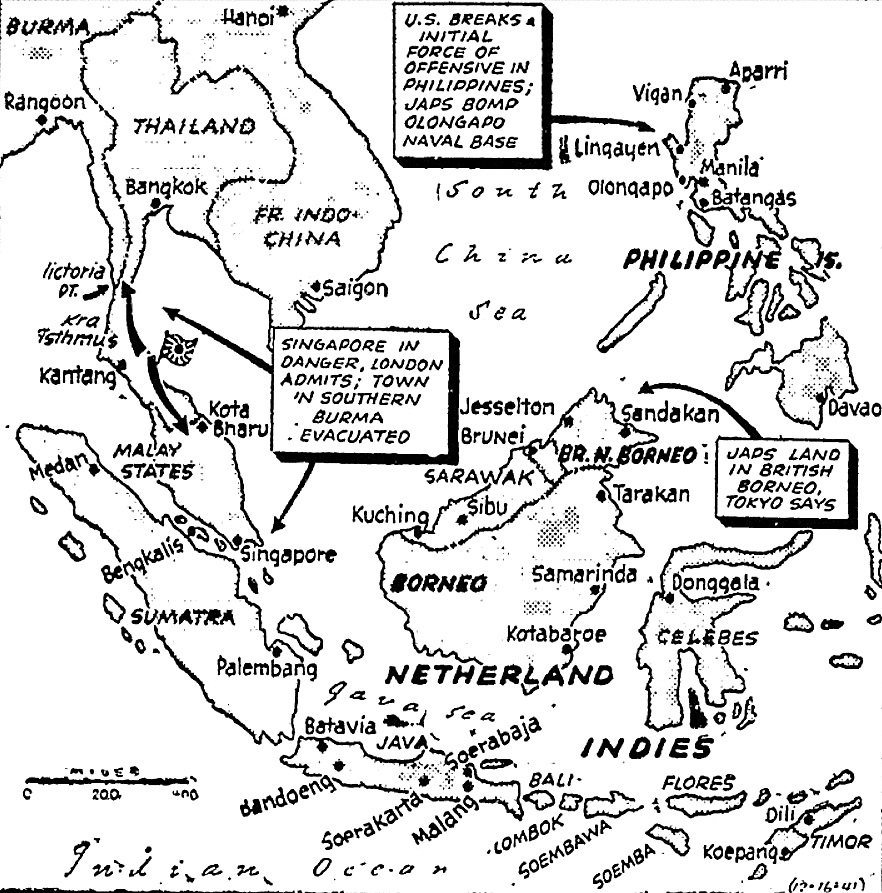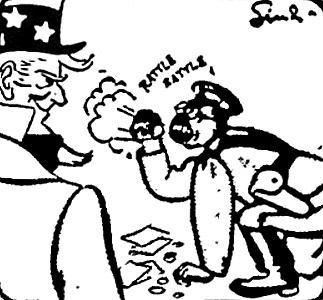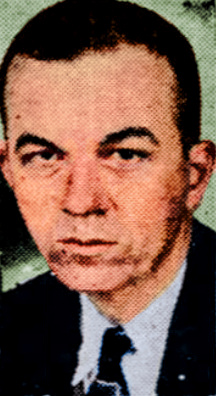Common sense must guide civilians in wartime, 1917 Navy Secretary says
Near-panic over Hawaiian losses, court-martial talk criticized
By Josephus Daniels
The United States is at war – through the shocking circumstances of one of the world’s most monumental pieces of treachery. America’s defenders suffered a setback. Some head-shakers and handwringers saw the setback as defeat. Ignorance and the fear of a few spawned imaginary disaster for this great nation. This article calls a halt to that sort of thing. It was written by Josephus Daniels, secretary of the Navy under World War President Woodrow Wilson.
RALEIGH, North Carolina (Dec. 13) – There is no basis for the near-panic or the hysterical talk of court-martialing naval officers because of the sudden sneak sinking of an American dreadnaught at Pearl Harbor, or the destruction of the Prince of Wales, the British flagship in Asiatic waters.
When a man rushes out of the dark and stabs a pedestrian in the back, the policeman on the large beat is not suspended or discharged or put in discharge.
The United States did not lose its head in the Wilson days when the Lusitania was sunk. It was recognized as one of the hazards of a war waged by ruthless assassins.
Speed aids pirates
The people then recognized that those who used the stiletto and practiced submarine piracy could quickly deal death and destruction. It must be recognized now that the early advantage is with the pirates who employ the blitzkrieg.
The need of this tragic hour is the exercise of plain, old-fashioned, common sense. If people in and out of Congress are nerve-wracked – and all of us are under severe tension – they at least ought not to air imaginary charges against brave men, going down to the sea in ships as they place their lives in peril, or against like brave men in the Army who are standing guard and suffering, and some dying in the far-flung battle line on sea and land and air.
No cause for panic
The sinking of the Bismarck did not create a panic in Germany and the destruction of the Prince of Wales in the Orient has created none in England. No more should the first heavy blow at American naval forces in Hawaii or other losses cause the people of America to lose their nerve or poise or consecration to a cause dearer to them than life.
The pendulum swings from one extreme to another. Two weeks ago, I heard some of the very people who are looking now for a victim crying out: “Why doesn’t the government quit talking about two-faced Japanese envoys and smash the miserable little Japs before breakfast?”
Speak from ignorance
They spoke from ignorance as they are speaking now out of lack of knowledge when they seek to make culprits of men who are ready to give their lives to prevent the destruction of free governments on the earth.
Those who were clamoring for a before-breakfast annihilation of the Japanese forces in the Japanese Empire and the bombing of Tokio, as if it were something that was easy, knew nothing of either how Japanese covet death for country, or how for a score of years all the Japanese have been regimented to the one business of making ready to destroy all who did not acquiesce in the old order of imperialistic government with which they beguiled their innocent people by calling it “a new order.”
U.S. can trust
No man acquainted with what the Japanese navy did in the Russo-Japanese War, or with their preparedness for this stab in the dark, talked of cleaning them up as if it was an easy and quick job to be soon over and done with.
President Roosevelt has given assurance that the people shall be kept informed of the bad news as well as the good news when such information will not give knowledge that will aid the enemy.
The American people have learned that in every way they can trust their president. Their faith in him is based on his frankness and wisdom in the anxious days behind us. They know he will not fail them in the critical days we face – critical days, surely, but days that will end in an assured victory.
‘One call to all of us’
There is but one call to all of us in this high hour. It is to consecrate everything we have, and are, and hope to be, fashioning the weapons that will bring success, and in the full use of every ounce of brain and brawn in factory and in field and on the sea and in the air.
Our country has the men and the skill and the money to make our war effort invincible. Let us give allegiance and full faith to the men at the helm. They may be depended upon to weed out any who are unfit or ineffective, if such there be, and plan and execute everything that will bring victory.
“We have just begun to fight,” should be our slogan. And no backseat driving.
Trading is heavy –
U.S. markets weather war with Nippon
Stocks recover some of wide losses; commodities soar
By Elmer C. Walzer, United Press financial editor
NEW YORK (Dec. 13) – Markets this week weathered the shock of America’s plunge into the war against all Axis powers, while industry swung into an all-out war economy and consumers readjusted their buying habits.
The first impact of the war on Monday was a sharp drop in prices. On Tuesday the losses were extended. On Wednesday a brief extension of the decline was followed by a substantial recovery from the lows and on Thursday a good advance developed. On Friday, irregularity appeared again as traders evened up for the weekend.
Transactions for the week were around 10,000,000 shares, the largest for any week since May 1940. On the decline, the industrial average hit a new low since May 31, 1938, while the utility average made a new low since its introduction in 1929. The rail average made a new low since June 11, 1940. Despite the recovery on Thursday, the averages closed the week substantially lower. Industrials lost more than six points while the rail average was down nearly 3 points.
Commodities advance
Commodities rose on the first impact of war and the indexes hit a new high since May 1937. Price ceilings were placed on several import commodities.
In stocks, all sections were driven down early in the week when war fears gripped the market. Selling came mostly from small holders of stocks and their orders were bunched by the specialists into large blocks. Numerous margin calls were sent out – many more than Wall Street had anticipated – for it had been believed stocks were strongly held. Brokerage offices, staffs cut to the bone by Wall Street depression economy measures, worked into the night and prayed no blackouts would interfere with their bookkeeping.
On the recovery, the war issues – steels, coppers and special stocks such as shipbuilding and aircraft – came back first. Oils made good recoveries.
AT&T weakens
Rails had a bad week in most instances and the utilities were off fractions to more than 6 points. American Telephone was particularly weak in the communications, while heavily increased business as a result of the war helped sustain Western Union.
Demand for copper stocks was a feature late in the week. The group failed, however, to regain all the losses made early in the week. Liquor stocks joined the decline and were heavy losers.
Building issues and amusements also were prominent on the drop. Can shares met considerable liquidation and the well-liquidated tobaccos had fair-sized losses.
Holiday buying shows up
A feature in the business picture was a change of tempo in retail trade. There was a notable falling off in store attendance on the East and West Coasts when air raid alarms sounded. Buying turned to blackout materials, lanterns, flashlights, pails, etc. Holiday buying slowed, and the year-to-year gain in retail trade as a whole was the smallest since last March, according to the Dun & Bradstreet weekly review.
Industry swung into a war economy. Plant after plant went on a 24-hour-day, 7-day-week. Mines did the same in many instances. Government moved to allocate more and more materials away from civilian industry. The auto industry prepared for further curtailment of production and the auto shares fell to new lows. Steel operations hovered near 98 percent of capacity. Electricity output was at a record high.
War lifts demand –
U.S. oil industry seen facing its greatest test
American sea, air and land operations expected to boost petroleum needs by 100,000 to 250,000 barrels a day
TULSA, Oklahoma (UP, Dec. 13) – The American oil industry, facing its greatest test in history, was convinced today there will be an increased demand for: petroleum ranging from 100,000 to 250,000 barrels daily because of this country’s active engagement in war.
Sea, air and land operations of the United States armed forces against the Axis are expected to increase the military consumption of oil and gasoline in huge amounts.
Allied with nations that together with the United States control 96 percent of the world’s petroleum resources, America will not immediately feel the pinch of wartime needs.
But, according to an estimate made by Rep. William P. Cole Jr., D-Maryland, before the outbreak of the Pacific war, extensive military activity should require an additional quarter million barrels of petroleum daily from U.S. fields.
That would require average crude production of an amount which has been reached only once in history – late last month when the output hit 4,330,000 barrels daily.
New discoveries needed
To meet such a demand from our own military forces as well as supply nations allied with her, America must expand her fields by new discoveries of oil and must build new production facilities such as refineries. Otherwise, a certain amount of curtailment of civilian consumption may be forthcoming.
That gasoline will continue to be available to the American citizen for Sunday motoring and other unnecessary uses in wartime as in peacetime is an unthinkable condition to many oil industry observers.
The government may now be able to persuade the public to reduce gasoline waste sharply. It was unsuccessful in such a program early this year. Actual hostilities may change the average person’s attitude during the next few months, however.
On the opposing side of the war, the Japanese oil situation is obscured. The petroleum reserves which Tokyo has built up for this war within the last three or four years are an unknown factor.
Some production figures are available, however.
The total annual Japanese output of both synthetic and natural crude products (according to the Weekly Oil & Gas Journal) amounts to 8,450,000 barrels annually, or 60 percent of the estimated military needs during the China campaign. Besides this, Japan is known to have planned to expand synthetic production to 16,000,000 barrels annually. Whether this has been fulfilled is unknown.
Japan has 30 refineries with a total capacity of 63,670 barrels daily. Total civilian and military requirements were estimated at 110,000 barrels daily before the present outbreak of the war.
Jap fields scattered
Part of Japan’s small annual oil production, 4,000,000 barrels, is obtained from Sakhalin Island. That area is a long, narrow strip of land lying northeast of Vladivostok adjacent to the Asiatic mainland.
Japan controls only a portion of Sakhalin, however, while the remainder is in Russian hands. Sakhalin is nearer Vladivostok than Tokyo and within easy reach of Red Army bombers.
The remainder of the Japanese fields are scattered down the western side of the island empire – one on Hokkaido Island and another on the western side of Honshu Island, which is the main landmass of Japan on which Tokyo is located.
All are vulnerable to American or Russian bombers, especially those of the latter country. Yokohama, where the Mitsubishi Oil Co. refinery is located, is 1,700 miles from Manila. That refinery is the most modern in Japan.
Bond prices drop to new low levels
U.S. government, foreign issues hit hard; rails pare losses
NEW YORK (Dec. 13) – All sections of the listed bond market were hammered down to new lows for the year and longer in heavy trading this week, following the United States’ formal entry into World War II.
Domestic corporate issues rallied smartly late in the week and scaled their losses moderately, but the U.S. government and foreign lists continued weak.
Trading in Japanese dollar bonds was “held up” by the New York Stock Exchange Monday and these issues, along with German and Italian funds, were suspended officially “until further notice” before Friday’s opening. Final prices in the German group showed losses of about 1 to 4 points, while the Italian list was down 3 to 9 points.
Australian loans slump
Bonds of the Axis-occupied countries, however, remained on the board and bore the brunt of the liquidation, with losses running from about 10 to 13 points in the French, Belgian and Finnish issues. Denmark 6s lost nearly 26 points while Norway 6s broke more than 21 points and recovered only slightly.
Australian loans also were hard-hit, losing 4 to 13 points at their lows, but Canadian bonds limited their declines to relatively small amounts. Brazilian funds dropped as much as 8 points and Uruguayans as much as 6 in a weak Latin-American group.
U.S. government bonds tumbled to new lows in a wide break that brought in open-market support of the Federal Reserve authorities for the first time since the German invasion of the low countries in May 1940. Losses in the section were extended to almost 3 points before resistance developed in sufficient force to stem the decline.
Industrials hit new lows
Domestic corporate issues ran into heavy early selling. Measured by the Dow Jones averages, industrial and high-grade rail bonds reached new lows since June 1940 utilities and second-grade rails since August of last year and the composite since early July 1941.
Rail leaders were driven down 5 to more than 9 points and then recovered almost half the ground lost on a mud influx of buying Thursday and Friday. New York, New Haven & Hartford. Chicago, Milwaukee, St. Paul & Pacific, Rio Grande Western, Wabash, Great Northern and Southern Pacific issues were outstanding weak spots.
Utilities and industrials showed less rallying power. International Telephone and Portland General Electric bonds lost as much as 11 points, while Commercial Mackay and Laclede Gas issues had losses running to around 14 points at their lows. Warren Brothers 6s featured the industrials. breaking 15 points without attracting any appreciable support.
Völkischer Beobachter (December 15, 1941)
Britische Panzerdivision in Südmalaya vernichtet
Japanischer Einbruch in die feindlichen Stellungen
Eigener Bericht des „Völkischer Beobachters“
vb. Wien, 14. Dezember - Der japanische Kampf gegen die britischen und nordamerikanischen Stützpunkte im pazifischen Raum gehen mit unverminderter Heftigkeit weiter. Wie das japanische Hauptquartier am Sonntag bekanntgab, haben die japanischen Landungstruppen in Südmalaya starken feindlichen Widerstand gebrochen und sind tief in die feindlichen Stellen eingedrungen. Hiebei wurde eine britische Panzerdivision vernichtet, wobei 20 Tanks, 16 Panzerabwehrkanonen und 60 gepanzerte Kraftwagen erbeutet wurden.
Gleichzeitig mit den Operationen der Landtruppen auf der Malayenhalbinsel meldet das kaiserliche Hauptquartier starke Luftangriffe auf feindliche Lufthäfen in Burma und Malaya. Besonders heftig sind Pinang an der Nordwestküste und Victoria in Südburma bombardiert worden.
Trotz starker Abwehr wurden Truppenansammlungen, Flugzeughallen sowie Transporter angegriffen. Zwei Transporter sanken, ein anderer ist schwer beschädigt worden. Mehrere Flugzeuge am Boden wurden zerstört. Andere Einheiten griffen Flugzeughallen in Mergui (Südspitze Burmas) und Kuatan (Malaya) an, wobei Hallen, Flugzeuge und Öldepots vernichtet wurden. Die japanische Luftwaffe verlor drei Flugzeuge.
Luftherrschaft über Malaya
Nach einer weiteren Meldung der Heeresabteilung haben die Japaner im Kampf um Malaya die Luftherrschaft errungen. Die Luftstreitkräfte Englands seien im wesentlichen vernichtet.
Die Armeeluftwaffe schützte Transporte, Landungsoperationen sowie Operationen auf dem Lande und vernichtete feindliche Aufklärer. Bisher wurden 129 britische Flugzeuge abgeschossen oder am Boden zerstört, ein feindlicher Transporter versenkt, zwei Kanonenboote sowie vier Transportschiffe schwer beschädigt und etwa hundert feindliche Lastkraftwagen zerstört. 17 eigene Maschinen gingen verloren.
Hongkong zur Übergabe aufgefordert
Der Oberbefehlshaber der japanischen Einschließungsarmee hat Hongkong zur Übergabe aufgefordert, da die Seefestung im Bereich der japanischen Geschütze liege, die, wenn sie in Aktion treten müßten, auch unter der unschuldigen chinesischen Bevölkerung große Verluste verursachen würden.
Gewiß steht die strategische Bedeutung Hongkongs weit hinter der Wichtigkeit Singapurs zurück, aber die Tatsache, daß japanische Truppen schon nach fünf Tagen den starken Festungsgürtel durchbrechen konnten, den die Engländer mit Aufwand großer Mittel in jahrelanger Arbeit zum Schutze Hongkongs aufgerichtet hatten, läßt ahnen, weiche Gefahren auch der mächtigen englischen Festung auf der Malaienhalbinsel drohen.
Hongkong, das auf einer Insel liegt, ist von Kaulun nur durch einen schmalen Meeresarm getrennt, den man mit der Fähre in sieben Minuten überqueren kann. Die stark befestigte Stadt und der Stützpunkt verfügen über zwei Flugplätze und sind zum größten Teil durch Hafen-, Werft- und Industrieanlagen ausgefüllt. Der Verlust von Kaulun setzt die in Hongkong stehenden englischen Truppen in eine aussichtslose Lage, denn die Insel liegt nun ungeschützt unter dem Feuer der japanischen Artillerie aller Kaliber. Militärische Fachleute nehmen an, daß selbst im ungünstigen Fall Hongkong bald erobert sein wird.
Nach japanischen Angaben wird die britische Festung Hongkong von 39.000 Mann verteidigt, unter denen sich 5000 freiwillige und 4000 militärisch ausgebildete Polizisten befinden. Der größte Teil der Mannschaften besteht jedoch nicht aus Engländern, sondern aus Indem und Chinesen.
Die englische Niederlage von Hongkong hat eine enorme militärische Bedeutung, denn es darf nicht übersehen werden, daß dieser britische Stützpunkt in der Flanke der japanischen Seeoperationen gegen Manila als Startplatz für Bombenflugzeuge gewisse Gefahrenmöglichkeiten in sich trug. Außerdem aber hat der japanische Sieg einen besonderen moralischen Wert, denn mit Hongkong vernichten die Japaner zum erstenmal eine jener englischen Ostasienstellungen, auf denen der imperialistische Einfluß der Briten gegen den Fernen Osten fußte. Hongkongs Niederlage mag als ein Symbol für die beginnende Neuordnung der Welt auch in Ostasien aufgefaßt werden. Nach hundertjähriger Willkürherrschaft – mit Hongkong bleibt zum Beispiel der zweifelhafte Ruf verbunden, auch Hauptstützpunkt des englischen Opiumhandels nach China gewesen zu sein – wird den Engländern jetzt hier der verdiente Prozeß gemacht.
England von Japans Luftstärke überrascht:
Singapur braucht ‚Wolken von Flugzeugen‘
Eigener Bericht des „Völkischen Beobachters“
dr. th. b. Stockholm, 14. Dezember - Die Vernichtung der „Prince of Wales“ und der „Repulse“ hat für England erneut die Frage aufgeworfen, ob die ihm zur Verfügung stehenden Flugzeuge überhaupt zur Verteidigung der weit verstreuten britischen Machtstellung ausreichen. Diese Frage wird in England lebhaft debattiert. Es sei aber kein Diskussionsthema, sondern ein sehr ernstes Produktionsproblem. Tatsache sei jedenfalls, schreibt man in London, daß wenigstens zur Zeit die japanische Luftwaffe den englisch-amerikanischen Luftstreitkräften überlegen sei.
Die Schlagkraft der japanischen Luftwaffe, so heißt es in der gleichen Meldung, werde in London ganz offen als der bisher überraschendste Faktor des neuen Krieges bezeichnet. Die wirksame Zusammenarbeit zwischen der japanischen Flotte und Luftwaffe werde mit dem Zusammenspiel der deutschen Panzer- und Luftwaffenverbände verglichen, das im Westfeldzug die französischen Armeen und das britische Expeditionskorps außer Gefecht setzte. Alle englischen Korrespondenten im Fernen Osten sind sich darüber einig, daß man in England die Qualität und Quantität der japanischen Flugzeuge und die Geschicklichkeit und Treffsicherheit der japanischen Flieger erheblich unterschätzt habe. „Der Wahnsinn, den Gegner zu unterschätzen“, so heißt es zum Beispiel in einer Meldung des „Daily Herald“, „wurde wieder einmal erwiesen.“
Bemerkenswerte Eingeständnisse
Wolken von Flugzeugen, so heißt es in einer weiteren Meldung aus Singapur, müßten jetzt nach dem Fernen Osten entsandt werden, ehe die Japaner weiter vorrückten. Gerade jetzt käme es darauf an, den Einsatz der britischen Luftwaffe auf die entscheidenden Punkte zu konzentrieren. „Nichts wird gewonnen“, so heißt es zum Beispiel in der „Yorkshire Post“, „wenn Wir Vermeiden würden, daß unsere Streitkräfte in Libyen weit besser gestellt wären, wenn sie eine überwältigende Überlegenheit in der Luft besäßen. Diese Hilfe hätte man ihnen geben können, wenn einige Geschwader der RAF, die damit beschäftigt waren, deutsche Städte anzugreifen, im Mittleren Orient eingesetzt worden wären. Die Bombardements in Deutschland sind im Hinblick auf die erzielten Ergebnisse reichlich kostspielig. Die über das Bombardement von Neapel veröffentlichten Bilder zeigen zwar, daß einige Schäden angerichtet wurden, daß aber Neapel keineswegs k. o. ist.“
Das sind bemerkenswerte Eingeständnisse. Wenn es auch verfrüht wäre nach sechs Tagen Krieg im Fernen Osten und im Stillen Ozean bereits weitreichende Folgerungen zu ziehen, so erhärten diese Eingeständnisse den längst bekannten Tatbestand, daß Englands bisher bekannte Kampfmittel für einen „Planetarischen Krieg“, von dem man jetzt in London spricht, kaum ausreichen.
